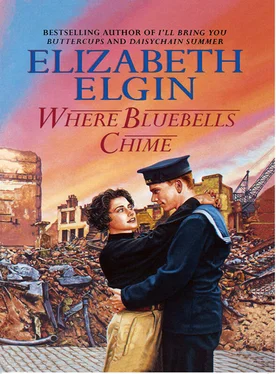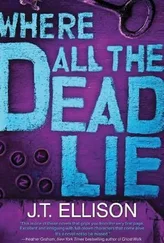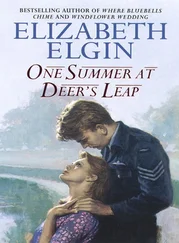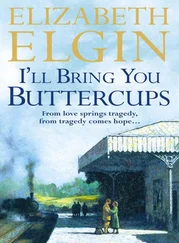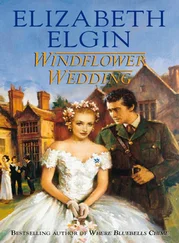He bit savagely into a sandwich. At midday, Jack Catchpole was in the habit of eating a good, sustaining meal with his feet under his kitchen table, but today he had been fobbed off with sandwiches, and all on account of those Spitfires. Derisively he investigated the contents of the sandwich.
‘A man’s expected to dig for victory on fish paste?’ he snorted.
‘Mrs Catchpole not very well, then?’
‘Nay. Nowt like that. She’s busy collecting aluminium; her and Alice Dwerryhouse and Miss Julia got it all organized.’
‘The Government, you mean – wanting people’s pans to melt down for planes?’
‘That’s it. Got a right pile already in one of the stables at Rowangarth. Folks is chucking out pans like there’s no tomorrow. But I suppose we need fighters. Us lost a lot at Dunkirk, tha knows.’
Gracie knew. She had wept with pride when the soldiers were snatched off the beaches. It had been around that time, in a heady haze of patriotism, she had joined the Land Army.
‘Any road,’ Catchpole was eager to return to the ins and outs of the Suttons, ‘young Sir Andrew comes on leave soon, we hope, from the Navy. He’ll be down here for sure, having a look at the gardens. He’s real fond of the orchid house – but I’ll tell you later about her ladyship’s special orchids, the white ones. Very sentimental about the white ones, she is.’
‘So when he comes here, what do I call him?’ Gracie had never met a gentleman of title before.
‘Why, you gives him his rank as is due to him. “Good morning, Sir Andrew,” you’ll say, then like as not he’ll ask you to call him Drew as folk who’ve known him since he was a babbie alus do. Mind, when he came of age, some started to call him Sir Andrew – but more as a politeness. The lad hasn’t changed, though. He’s a credit to her as had him, and her as reared him. But we haven’t all day to sit here nattering.’ He threw the remainder of his sandwiches to hopefully waiting sparrows. ‘There’s a war on and we’ve got to get them potatoes and marrows ready for when the market man calls – and a score cabbages he wants, an’ all.’
‘But you’ll tell me some more, tomorrow – about the Suttons?’ Gracie begged. ‘About the one who had him and the one who brought him up, I mean.’ That small snippet had intrigued her. ‘Did Sir Andrew have a nanny?’
‘No, he didn’t. But that’s another story. For tomorrow,’ Catchpole chuckled. He could get to like this lass. Happen, if he and Lily had had bairns of their own, one of them might have been like young Gracie. ‘So on your feet, lass. Let’s get digging up them potatoes – for victory!’
Though when that victory would come, he thought mournfully, only the good Lord knew – and He wasn’t telling!
The first sight of Rowangarth had always been special to Drew Sutton. To walk the long slow curve of a drive lined with beeches and oaks and all at once to come upon the old house always aroused an ache of tenderness in him. But this afternoon it was particularly special and achy because he hadn’t seen it for six months and only now he realized how much he had missed it.
Mullioned windows still shone a welcome; the roof still sagged and the rose-red bricks were still smothered in blowsy Bourbon roses and clematis.
God – don’t let me die and lose it. The heart-thumping ache turned to panic inside him. Let me live through this war.
‘Stupid clot!’ he hissed. It wasn’t down to God. It was like the old Chiefie in signal school said: you just had to accept that there was a time to be born and a time to die. And you died when – if – your number came up. So best not worry overmuch about it, Chiefie said comfortably, because worrying only wasted the time you had left.
Good old Chiefie. He’d teach them the morse code if it was the last bloody thing he did, he said at the start of their training. And taught them he had, Drew grinned. DWRX805 Telegraphist Sutton A. he was now, and seven shillings a week extra at pay parade because of it.
He pulled back his shoulders and set off at a quick pace. They always said that the longest part of any journey was the last mile home and now there was only a hundred yards to go. A hundred strides, and he was there!
He should have known someone would be waiting and watching because all at once the doors were thrown open and his mother was calling, waving, running to meet him. And Grandmother standing at the top of the steps with Nathan and Tilda and Mary.
‘Drew!’ Mother and son held each other tightly.
‘Hullo, dearest …’ It was all he could say because all at once there was nothing to say – nothing that mattered.
He gathered his grandmother gently in his arms, kissing her softly, whispering, ‘Missed you, Gran.’ And the words were hard to say so he clasped Nathan’s hand tightly then kissed Mary and Tilda. And Mary blushed hotly and Tilda closed her eyes and smiled broadly. Then it all came right and all at once everything was happiness and homecoming.
‘ Hecky! ’ Tilda shrieked, and rushed off in a tizzy.
‘She’s got cherry scones in the oven,’ Mary supplied, which made everyone laugh because special days at Rowangarth had always been cherry-scone days ever since anyone could remember.
‘It’s good to be home,’ Drew laughed because suddenly it seemed as if he had never been away.
‘I’ve just noticed,’ Julia frowned. ‘Where is your hat?’
‘ Cap , Mother.’
‘Well, where is it – and your kit?’
‘I left everything at the lodge.’ Hammock, kitbag, respirator, greatcoat. In his eagerness to see Rowangarth he could carry them no further. ‘I hitched a lift from Holdenby station. There was a tractor passing with a trailer behind it. People always give lifts to uniforms. He dropped me off right at the gate lodge. I’ll borrow a wheelbarrow from Catchpole later, and collect my stuff.’
‘But you should have phoned from York. I’d have picked you up.’
‘There was a queue for the phone boxes and you know how long it takes to get through these days. Anyway, what about your petrol coupons?’
‘Blow the petrol!’ Drew was home. Nothing else mattered.
‘Shall we all have tea?’ Helen smiled. ‘And will someone tell me – where did Cook find glacé cherries for the scones?’
Such things – dried fruit for cakes, too – had disappeared completely since war came, she had thought. People were even hoarding the last of their prunes now, to chop finely into pieces and hope they would pass for currants.
‘I think, Mother, she has some squirrelled away in a screw-top jar – for special occasions.’
‘Good old Tilda,’ Drew laughed.
A cherry-scone tea in the conservatory. All at once, his war was a million miles away.
Later, when Drew had collected his kit and returned the wheelbarrow to its proper place, Julia took her son’s cap and regarded it, eyebrows raised.
‘HMS, Drew? HMS what ?’
‘Barracks is known as HMS Drake , Mother, but we can’t use a ship’s name now. It would tell the enemy which warships are in port, for one thing.’
‘So you’ll only ever have HMS on your cap?’ Julia felt mildly cheated.
‘Afraid so – for the duration. That’s why all the signposts have been removed. We don’t want to let paratroopers know exactly where they have dropped, now do we?’ He was careful to make light of it, to smile as he said it, because most people thought that the invasion, if it came, would be airborne – after a softening-up of bombing, that was. ‘But don’t worry. The south coast, if you could see it, is thick with ack-ack guns and barrage balloons, and there are a lot of fighter stations all along the coast and around London. You’d be surprised the way we’ve got ourselves organized so quickly after Dunkirk,’ he supplied with the authority of one who had seen almost six months’ service in the armed forces.
Читать дальше
